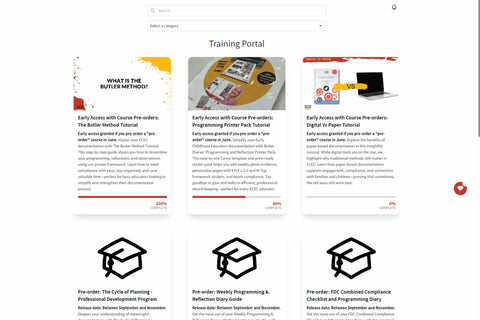If you're a tradesman in Australia, then you know how important it is to manage your taxes effectively. It can be daunting to figure out how to stay on top of your financial obligations, but with a few key tips, you can make sure that you're staying compliant while also maximising your deductions and minimising your tax burden. Here are some essential tax tips for Australia tradesmen:
Keep Accurate Records
One of the most critical things you can do to ensure that you're staying on top of your tax obligations is to keep accurate records of all your income and expenses. This means keeping track of your receipts, invoices, and other financial documents throughout the year. By doing this, you'll be able to claim all the deductions you're entitled to when tax time comes around.
You can use your Tradie Diary to keep all this valuable information in one place.
Lost your receipt?
Don't worry, Butler Diaries has you covered. You can download any previous invoices from your account.
Understand Your Deductions
As a tradesman, you'll be able to claim deductions for a wide range of expenses related to your work. These might include things like tools and equipment, work-related travel expenses, and even the cost of maintaining a home office. Make sure you understand what deductions you're entitled to and keep track of all the relevant expenses throughout the year.
What Deductions can you Claim?
Some of the most common tax deductions that Tradesmen can claim include:
-
Tools and Equipment - You can claim a deduction for the cost of tools, equipment and other assets you use in your trade, including repairs and maintenance costs. Your Tradie Diary, the best tool in your toolbox? Completely tax deductible! For more costly purchases, you can claim the depreciation over time.
-
Work-related travel expenses - You can claim a deduction for expenses incurred while traveling to and from work sites. This may include car expenses, such as fuel, registration and insurance, as well as public transport costs.
-
Home office expenses - If you work from home, you may be able to claim a deduction for the cost of running your home office, such as internet and phone expenses, heating and cooling costs, and depreciation of equipment used for work purposes.
-
Protective clothing - You can claim a deduction for the cost of protective clothing and uniforms that are required for your trade, such as hard hats, safety glasses and work boots.
-
Training and education expenses - You can claim a deduction for the cost of training and education related to your trade, such as course fees and textbooks.
-
Advertising and marketing expenses - You can claim a deduction for the cost of advertising and marketing your trade, such as business cards, flyers, and website expenses.
- Clothing - You can claim clothing purchased that has a business logo.
It's important to note that you can only claim deductions for expenses that are directly related to your work as a Tradesman, and you must have records and receipts to support your claims. You may also need to apportion expenses if they are partly work-related and partly private.
It's always a good idea to speak to a tax professional to ensure that you're claiming all the deductions you're entitled to and keeping accurate records throughout the year.
Keep Logs
You can claim things mentioned above such as your travel, mobile phone use, and home office, however you have to keep a log that shows your business use versus your personal use. The log should be for a minimum of 12 weeks to be deducted for the year at tax time. The Tradie Diary includes space to record your odo reading to support you in keeping your log up to date.
Consider Your Business Structure
If you're a sole trader, you'll pay tax on your personal income, including any income you earn from your tradesman work. However, if you choose to set up a company or partnership, you may be able to take advantage of different tax rates and deductions. Consider speaking to a tax professional to help you determine the best business structure for your needs. You can also learn more about the different business structures here.
Stay Up to Date on Tax Changes
Tax laws and regulations can change frequently, so it's essential to stay up to date on any changes that might impact your tradesman business. Consider subscribing to newsletters from the Australian Taxation Office and working with a tax professional to make sure you're always aware of any changes that might affect you.
Plan for Your Future
Finally, it's essential to consider your long-term financial goals when managing your taxes. This might include planning for retirement or investing in your tradesman business to help it grow. By working with a financial advisor or tax professional, you can develop a plan that takes all of your goals into account and ensures you're staying on track to achieve them.
Managing your taxes as a tradesman can be complex, but by following these tips, you can stay on top of your financial obligations while also maximising your deductions and minimising your tax burden. Consider speaking to a tax professional if you need further advice or guidance on managing your taxes effectively.
And don't forget to order your Tradie Diary before 1 July 2023 to claim it on your tax this year!



















